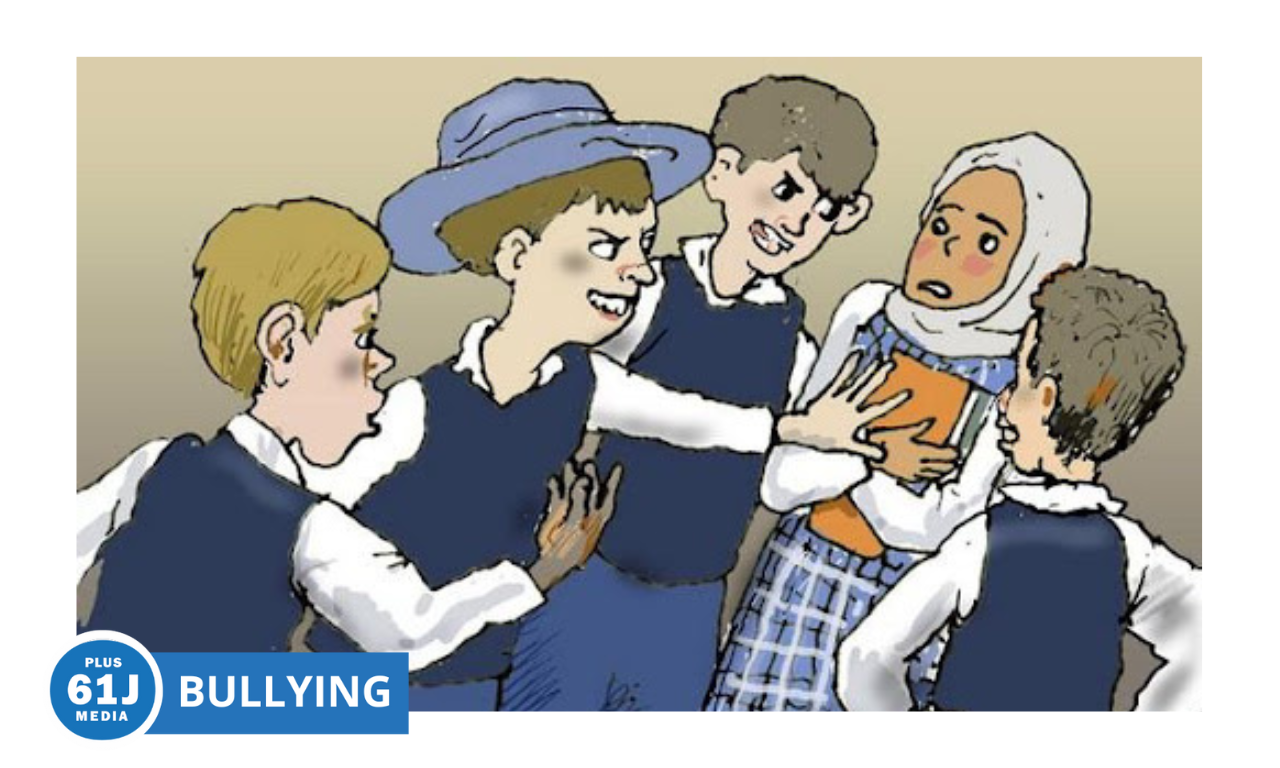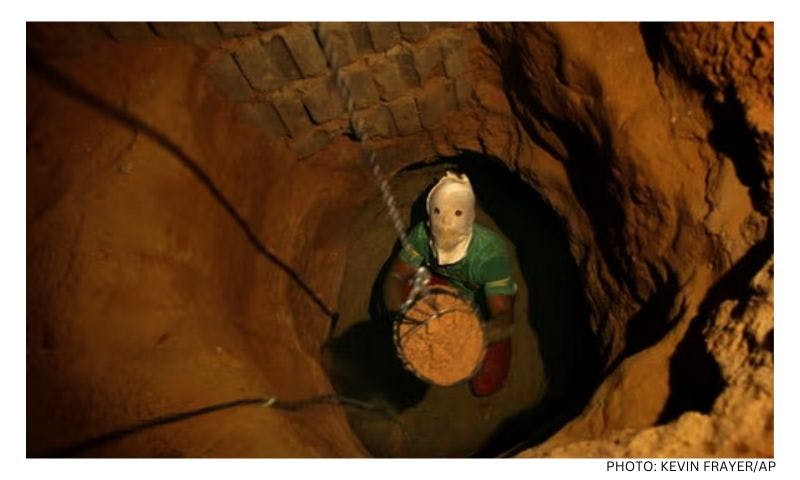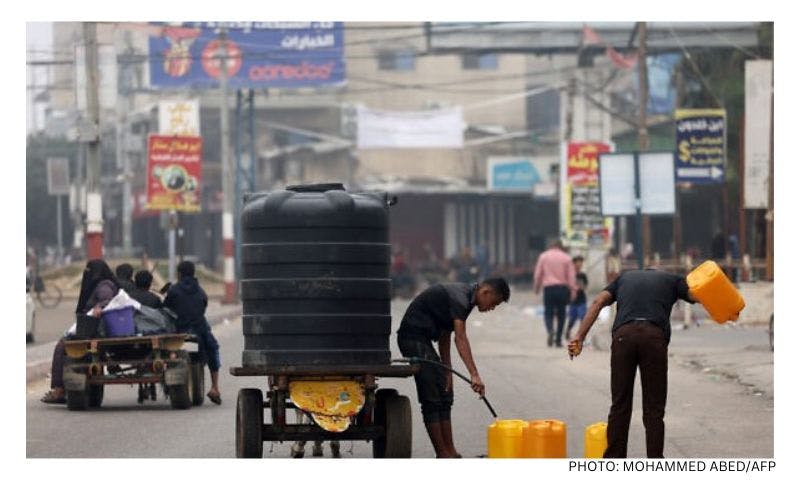Published: 18 March 2022
Last updated: 4 March 2024
Ben Lynfield visits the West Bank town offering surprising resistance to the Israeli army’s efforts to transform Palestinian land into a new settlement
RESIDENTS OF THE West Bank town of Beita are vowing to keep up a rebellion they are waging against the Israeli army to prevent the transformation of Palestinian land into a new settlement.
The Israel Defense Force (IDF) response to the Beita uprising has resulted in nine Palestinian deaths and more than 1200 gunfire injuries since May. This carnage has not broken the town's determination.
Israel has drawn condemnation for excessive and unjustified force and other alleged violations from B'tselem, the country's leading human rights group. Officials from Breaking the Silence, a group of IDF veterans who oppose the occupation, also have criticised what they see as misuse of the military on behalf of extremist settlers. Its director, Avner Gvaryahu, told The Jewish Independent that the toll taken on Beita is “horrible”.
The IDF does not see it that way. “Around 10-20” soldiers have suffered significant injuries and many others minor ones because of disturbances emanating from Beita, according to an IDF official. He said the army's measures have been necessary to protect a temporarily vacated settler installation and a nearby highway from violent Palestinians.
The IDF, which faces large crowds of Palestinians, some of them deploying slingshots and others burning tyres, sees the rebels from Beita, as “rioters”.
But on a visit to Beita, a hilly town of 17,000 near Nablus with a tradition of resistance to foreign rule dating back to the British mandate, The Jewish Independent found a community who believe firmly in the justice of their cause: saving their land from Israel and its settlers.
"My presence here is to keep an eye out, make sure there are no settlers and to show that Beita is here and will never give up," said Amar Hemayel, 30, as he looked across a valley at Sabih mountain, where Israel is working to establish the Evyatar settlement.
The outpost is part of Israel's broader effort at de facto annexation of occupied territory which most of the international community has earmarked for a future Palestinian state.
Beita residents say the land for Evyatar belongs to them and two nearby villages. Hemayel adds that his mother has land on the mountain.
Dror Etkes, director of the Kerem Navot group that monitors government, army and settler land practices, told The Jewish Independent that Israel is carrying out a “land grab” and “institutional theft” at Sabih mountain.
The IDF attributes the recent increase in the size of protests not to Mandelblit's decision but 'possibly because of the better weather'.
But veteran settler leader Daniela Weiss told The Jewish Independent last year that Evyatar is a major breakthrough in redeeming biblically endowed land in Judea and Samaria for its rightful owners, the Jewish people.
In this case, however, Israel is meeting stiffer than expected resistance.
“We don't want the army and settlers on Beita land,” Hemayel, who was wounded in the leg and head by rubber coated metal bullets during the protests, said as he sat on a plastic chair in front of two tents that mark off Beita's forward post in this asymetrical battle.
Three months in jail for stone-throwing and “incitement” and a recent pre-dawn arrest raid on his home have not deterred or frightened Hemayel. He was away at the time the troops came, broke open the door and questioned his wife.
While Israel views people like him as instigators of violence or even terrorists, Palestinians regard Hemayel as having a solid history as a freedom struggler. He served three years in jail beginning as a 16-year-old in 2008 for what he says was “resistance”, including 60 days in solitary confinement.
He has been a member of Hamas and Fatah during different periods but says he is now independent and that the uprising is not factional. He was named Amar after an uncle who was shot in the head by the IDF in 1990 during the first intifada uprising.
Hemayael says that even if he is jailed again, “I will come back and never stop”.

Nearby sat Said Hemayel, from the same large clan, who, as reported in July by The Jewish Independent, lost his 16-year-old son Mohammed to an IDF bullet to the chest. Looking markedly older than the last time we met, Said Hemayel told me he comes to the lookout every day because it has a view of where his son was shot.
“It's the only place I feel comfortable psychologically,” he said. “Being here I feel my son's soul is here.”
The IDF insists it is on a defensive mission to protect the settler buildings of Evyatar that were temporarily vacated while military administrators conducted a survey of land ownership according to a government deal with the settlers, who had seized the hilltop without prior permission.
Looking markedly older than the last time we met, Said Hemayel itold me he comes to the lookout every day because it has a view of where his son was shot.
Last month, then Attorney-General Avichai Mandelblit ruled after the survey that there is no reason not to allow a fully-fledged settlement on the site.
That decision resulted in bigger protests by Beita residents, who warn of a major escalation if defence minister Benny Gantz proceeds to endorse a settler return to the planned settlement. “There will be an escalation of violence and resistance,” said Said Hemayel. “A lot of people will sacrifice their lives.”
The IDF attributes the recent increase in the size of protests not to Mandelblit's decision but “possibly because of the better weather,” the IDF official told The Jewish Independent.
At the same time, the army has intensified its arrest campaign and introduced administrative detentions against Beita residents, mayor Yusuf Asidi told Plus 61J. He said about 100 arrests were made during night-time raids on homes and at military checkpoints during the past three months. “Most of those arrested were active in popular resistance.”
But he stressed that such resistance does not include gunfire. Israeli activist Yonatan Pollak, who marches alongside Beita protesters every week, says he is not aware of any use of Molotov cocktails either.

In addition to the nine Palestinians killed by the IDF, there have been 5978 injuries to Palestinians, according to the UN: 184 were from live ammunition, 1099 were from rubber coated metal bullets, 13 from shrapnel, 14 from physical assault and 31 classified as other. 4637 of the injuries were from tear gas inhalation that required medical treatment.
As a result of IDF gunfire, 150 Beita residents became disabled, according to the mayor.
The IDF official said military police investigations were underway into the circumstances of the nine Palestinian deaths. But according to Dror Sadot, spokesperson from B’Tselem, such investigations “almost never” result in any indictments.
The official declined to disclose the precise regulations on opening fire in the Evyatar area. But he said: "There are steps and levels. First riot dispersal, then use of Ruger below the knee against main instigators and then live fire, only if necessary."
The Ruger is a US made rifle that fires .22 calibre bullets which in some instances cause death. It was originally advertised by its manufacturer as being ideal for hunting small animals.
Sadot, from B’tselem, says that even though the IDF uses the Ruger for protest dispersal, it has documented cases in which it has killed people and should be considered live fire.
An Israeli regular participant in the protests, who asked that only his first name, Ido, be published out of fear of retribution from right-wing settlers, told The Jewish Independent: "There are people I know who got shot in the leg and arrested, got out of jail two months later and then got shot in the head. It's very common to be shot if you're young or not young.
“The people who carry flags get shot. I know of someone who was shot in the eye as he carried a flag. There are a lot of injuries to the upper body and the head. Just two weeks ago a 12-year-old boy named Rayan was shot in the head with a rubber bullet."
He continued: "The soldiers shoot without regard to distance. Sometimes they shoot at people who are close to them but there are also times when they shoot at people from a great distance."
"In the last few weeks, there have been snipers lying on the ground and shooting and more firing from behind olive trees," Ido said.
Israel is also waging economic warfare against Beita. Authorities have cancelled the Israeli work permits of 150 residents in a 'collective punishment'.
Pollak asserts that the IDF's “military violence” over the last ten months against the Beita protesters is the worst he has seen in more than 20 years of solidarity with protesting Palestinians.
He and another Israeli activist were severely assaulted by troops who alighted from a jeep on November 5 and both required treatment at Sheba Hospital. To the embarrassment of the IDF, part of the assault was videotaped. The IDF official said Pollak had been among a group that “cursed and attacked soldiers” and that the video was tendentiously edited.
Israel is also waging economic warfare against Beita. Security authorities have cancelled the permits to work in Israel of 150 Beita residents in a “collective punishment” against the town, according to Dror Sadot.
But it may well be that nothing Israel can dish out while still telling the world that its soldiers in the West Bank are part of a genuine defence force will work. At his lookout post Amar Hemayel told me. “It's been very costly. That's why we insist on bringing our rights back and we are ready to pay double to kick the settlers out.
“It’s a question of existence.”
READ MORE
Settlers put up illegal outpost in UNESCO heritage area in West Bank — report (Times of Israel)
Settlement security officers announce strike after arrest of colleague (Times of Israel)
High Court to rule on expelling over 1,000 Palestinians from West Bank firing zone (Times of Israel)
Israel seized land from Arab citizens based on temporary 1948 ceasefire line (Haaretz)
Israeli troops shot dead a Palestinian teen. The army hasn’t said what he did wrong (Times of Israel)
Photo: Amar Hemayel, from Beita in the West Bank (Ben Lynfield)




